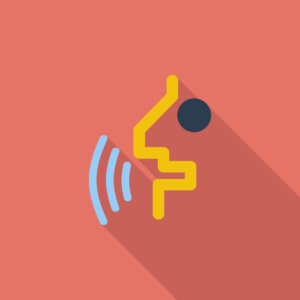Why the Human Voice Is the Year’s Most Important Technology
The shrinking role of big screens heralds a change in how we communicate with our devices and each other.
Topics
Frontiers
I’m a technologist neither by profession nor by training, but I know a tech trend when I hear one. And I heard one loudly and clearly amidst the roaring clatter of this year’s massive Consumer Electronics Show in Las Vegas.
The human voice is in its ascendancy.
We are witnessing two concurrent phenomena:
- As smartphones increase in size, speed, and capability, mobile devices are continuing to replace traditional computers and tablets across a wide variety of tasks and usage. Our media-consumption habits are likewise evolving as a result. With smaller screens, we may not yet be reading less (and this writer fervently hopes we never do), but we are emphatically listening more.
- In the age of the internet of things, we will be adapting to a fully screen-free relationship with most of our devices. One doesn’t type a request to Alexa, Siri, or Cortana — one speaks it. One doesn’t read a response; one listens to it. Such will be the case for the smart, connected devices we will all interact with across our homes and offices in a future that will arrive much sooner than you may have expected.
We are entering a transformative period in our relationship with both our personal and professional technology, one in which our reliance on text to both command and consume will be increasingly supplemented — and in many cases supplanted — by our reliance on speech. Interestingly, this trend even appears to hold in our relationships with the only screens in our lives that are growing larger. And the days when your voice-activated GPS and speech-to-text converters understood every third word at best? That was so 10 minutes ago.
Get Updates on Innovative Strategy
The latest insights on strategy and execution in the workplace, delivered to your inbox once a month.
Please enter a valid email address
Thank you for signing up
Is this a profound change? It certainly has the potential to be. Marketers and media professionals already recognize the growing (and, indeed, returning) power of storytelling. We hear and see it throughout native advertising and custom content; it is even more deliberately on display in the rising popularity of podcasts and other forms of spoken audio.
And the human voice, of course, is the original storytelling device. For many of us, it has never had an equal. If you are in the business of interacting with customers, you should be thinking deeply about how your communications and marketing strategies will need to evolve in the age of sound.


Comments (5)
Gregory Blass
Jacko Obels
Ismar Kaufman
Human voice interfaces for some systems can help a lot to keep users focused on other more important systems. The obvious case is the autombile, where the user (driver) must concentrate on the windshield, mirrors and so on ("driving system"), leaving the entertainment and communication systems to a second place. But there are many other industrial and personal cases where auxiliary systems could be controlled by voice commands. We are doing that for energy control centers in our power operation management system in Brazil.SEIJI KAWAKAMI
Helen Jeong